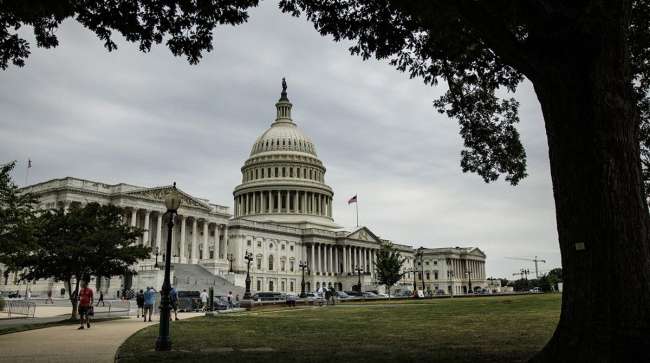Senior Reporter
Fiscal 2024 Appropriations Bills on Agenda in Congress

[Stay on top of transportation news: Get TTNews in your inbox.]
Senate funding leaders expressed optimism about efforts to advance fiscal 2024 legislation in the coming months.
Sens. Patty Murray (D-Wash.) and Susan Collins (R-Maine) pointed to bipartisan collaborations surrounding the consideration of measures that would fund federal programs beyond Sept. 30.
Fiscal year funding authority for the U.S. Department of Transportation, as well as other federal agencies, necessitates renewal beginning Oct. 1 to avoid a partial government shutdown.
“We are determined to continue working together in a bipartisan manner to craft serious funding bills that can be signed into law. Keeping the Senate appropriations process moving full steam ahead and in a bipartisan way is critical,” Murray and Collins said jointly on June 22. They are the Appropriations panel’s chairwoman and ranking member, respectively. “Our nation absolutely must be able to count on a dependable appropriations process as we grapple with urgent challenges at home and abroad. We are both committed to ensuring that the voice of the Senate is heard through the appropriations process and expect a busy summer of markups and continued bipartisan deliberation.”
While the Senate Appropriations Committee has yet to schedule the transportation bill’s consideration, it has taken up funding legislation related to veterans and agriculture policies. For their part, House leaders have advanced a series of fiscal 2024 appropriations bills linked to defense, homeland security and energy operations.
“Republicans on the committee intend to act quickly to get all appropriations bills signed into law. We’ll use the appropriations process in the House to stake out our priorities and reverse the reckless spending of the last two years,” House Appropriations Committee Chairwoman Kay Granger (R-Texas) said recently.
Rep. Rosa DeLauro (D-Conn.), the House committee’s ranking member, has pushed back on Republicans’ funding directives. As she put it, “Instead of introducing bills built on untenable cuts that will harm hardworking families, we should be working together to create funding bills that follow the current law of the bipartisan debt agreement.”
Earlier this year, the White House and House GOP leaders arrived at certain budget parameters to avoid a default on the country’s borrowing authority.
Overall, President Joe Biden’s fiscal 2024 budget proposal would dedicate nearly $1 billion for the Federal Motor Carrier Safety Administration. Tasked with regulating commercial heavy-duty trucks and buses, FMCSA would receive $435 million for its safety operations division and $516.3 million for motor carrier safety grants.
The White House budget proposal also would provide the Federal Highway Administration with $60.8 billion, the Federal Transit Administration with $17 billion, the Federal Railroad Administration with $4.8 billion, the National Highway Traffic Safety Administration with $1.3 billion and the Pipeline and Hazardous Materials Safety Administration with $387.3 million.
At a House hearing in April, Transportation Secretary Pete Buttigieg called on lawmakers to support Biden’s budget request.
Want more news? Listen to today's daily briefing above or go here for more info
“Our transportation system is at a turning point. We are finally in the process of renewing its physical foundations, but we are also grappling with serious vulnerabilities — especially in areas where federal oversight and regulation have been undermined — which pose very real dangers to workers, families and communities,” the secretary said. “In recent years, Congress has proven that it can deliver — on a bipartisan basis — the kind of transformative infrastructure law that evaded our predecessors for decades.”
Buttigieg emphasized, “Now we need to bring that same bipartisan dedication to sustain those investments in America.”

